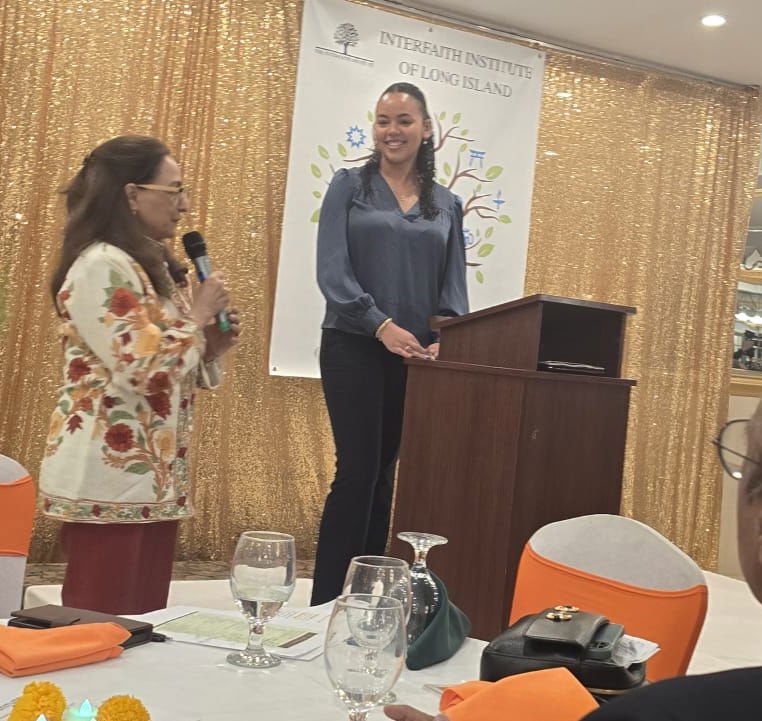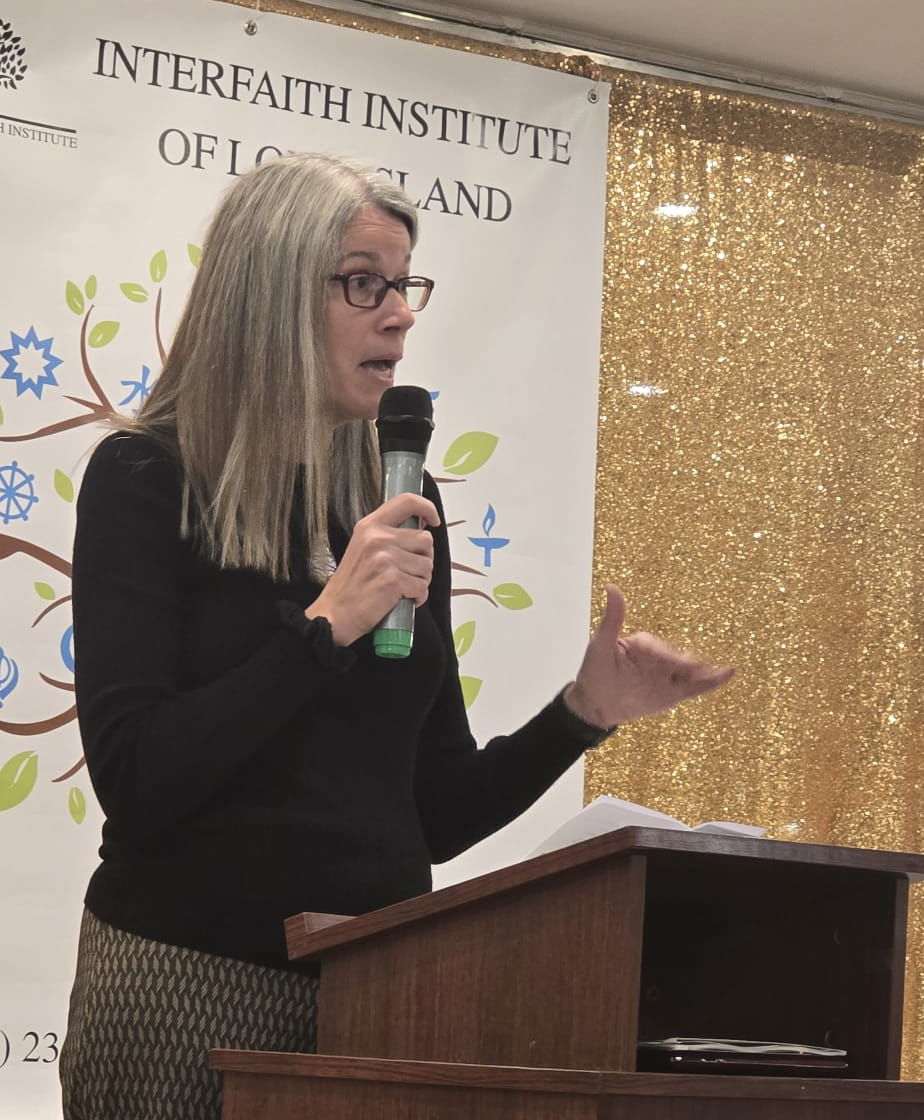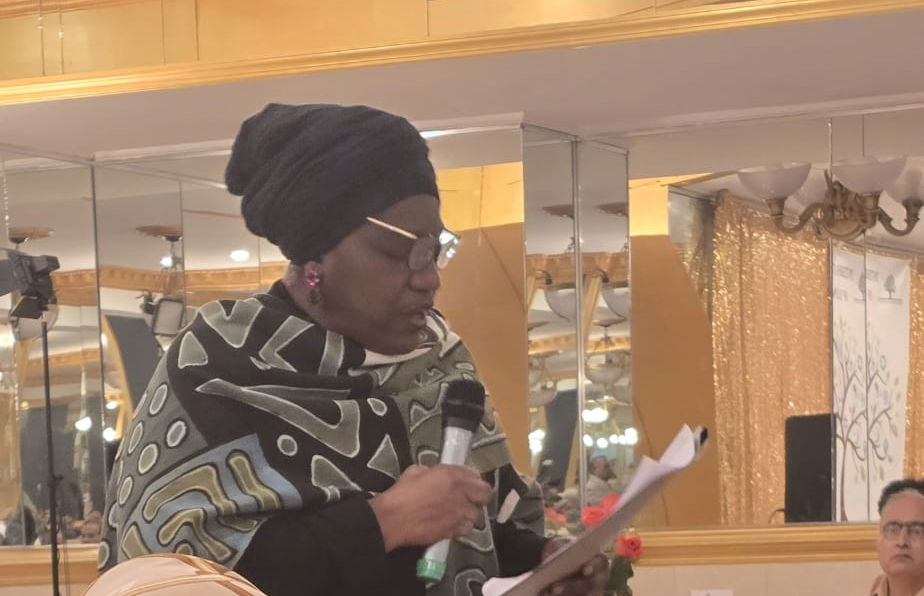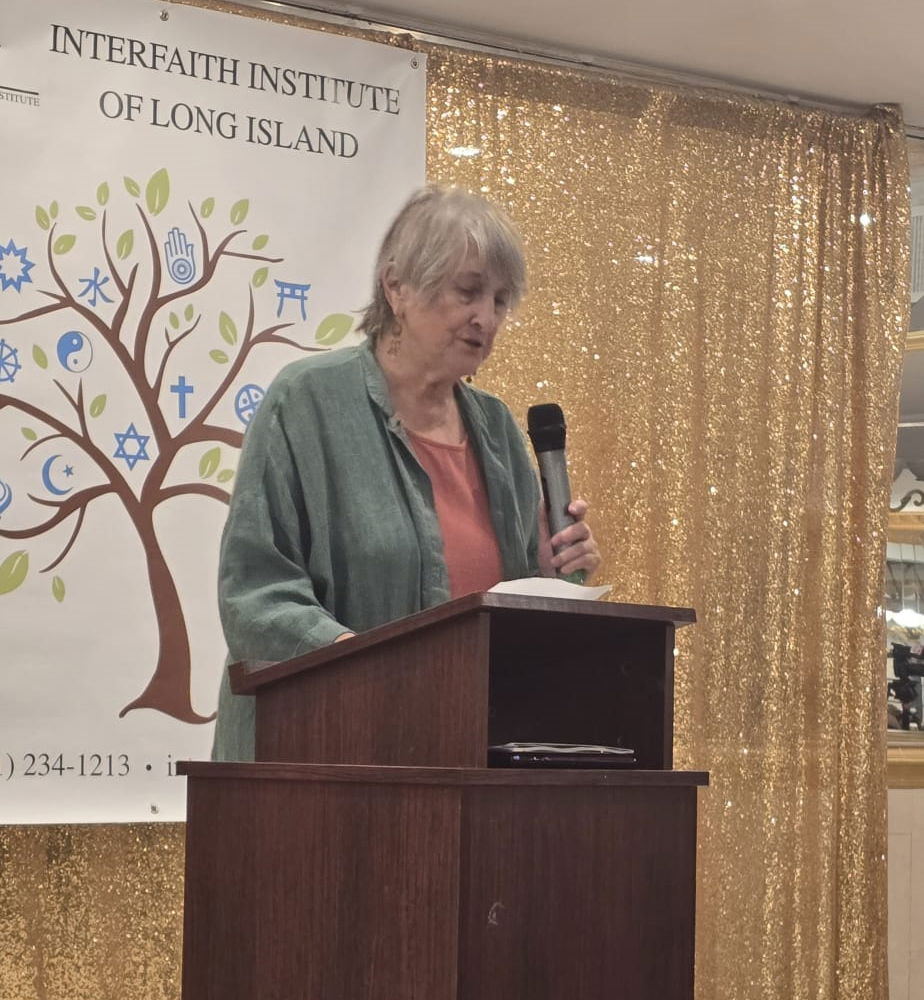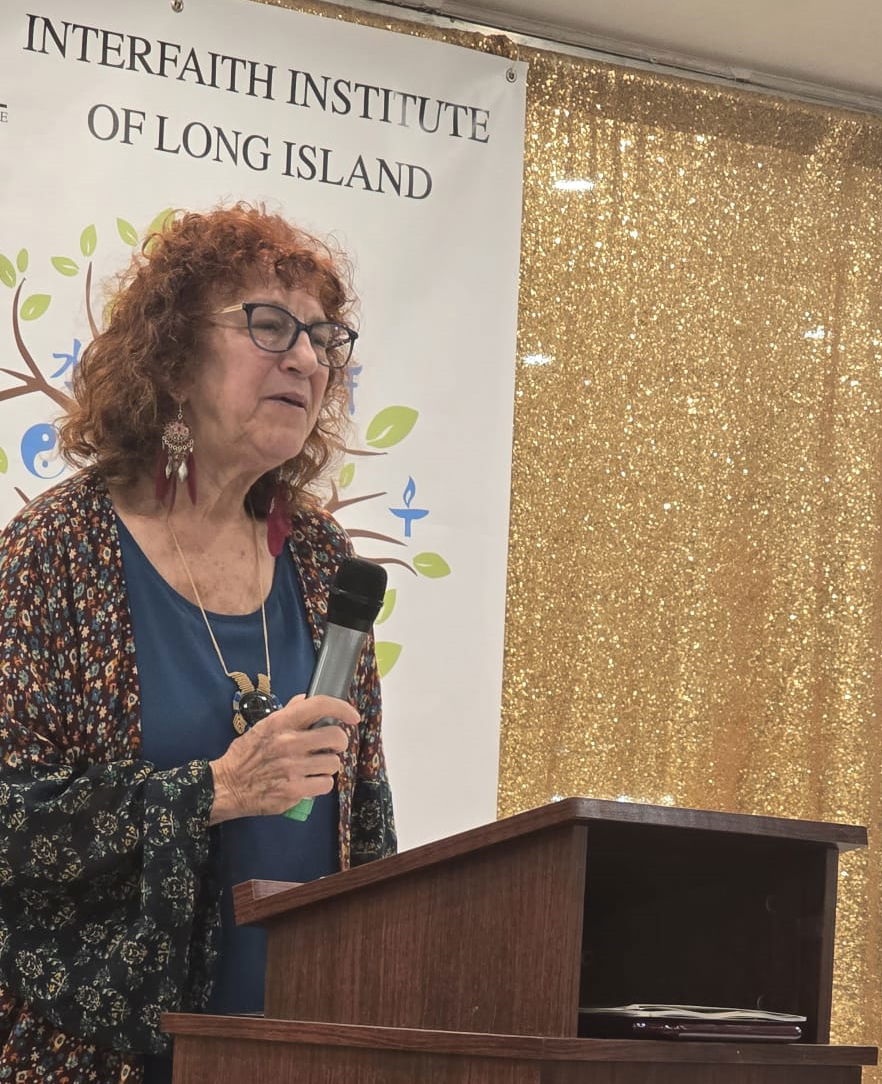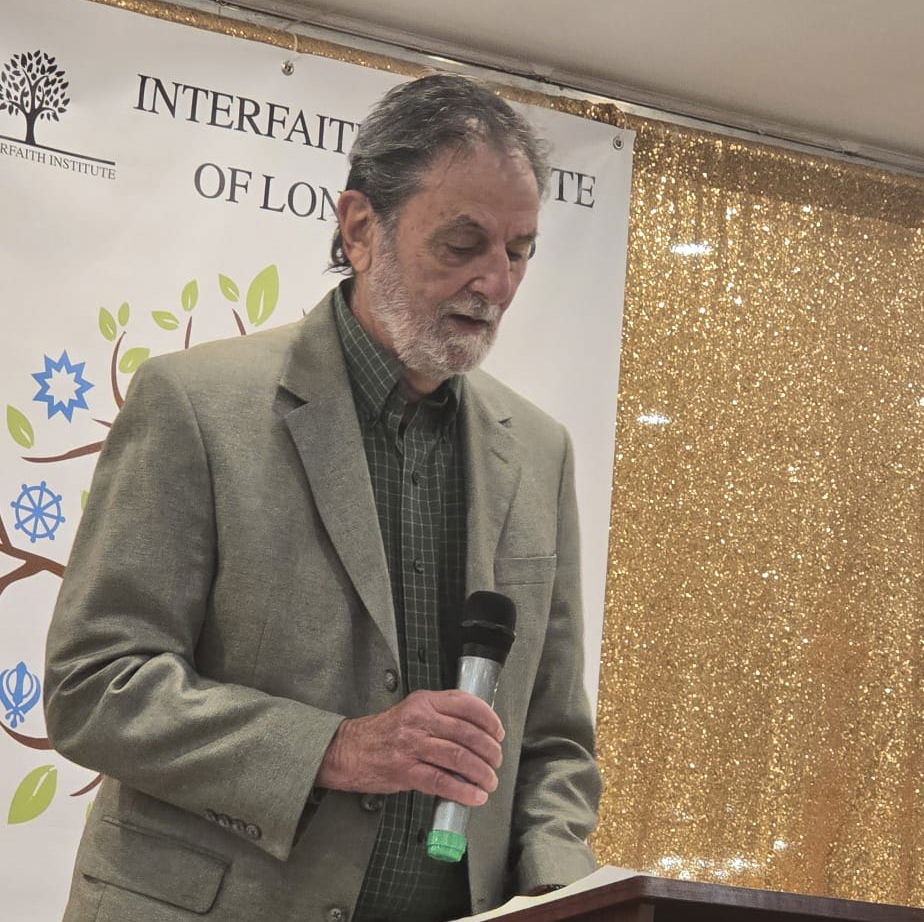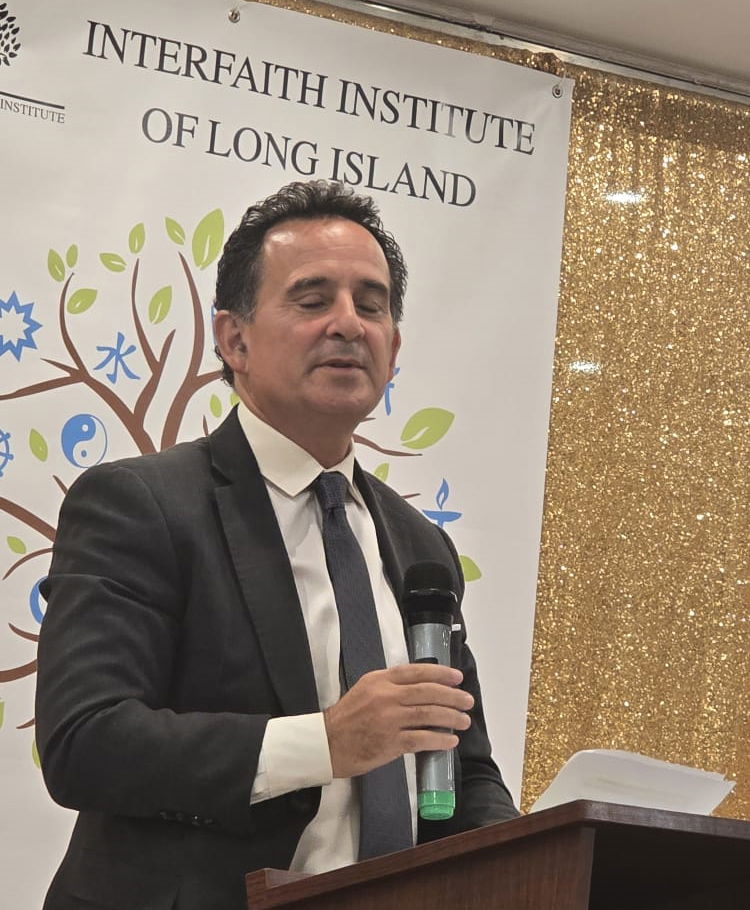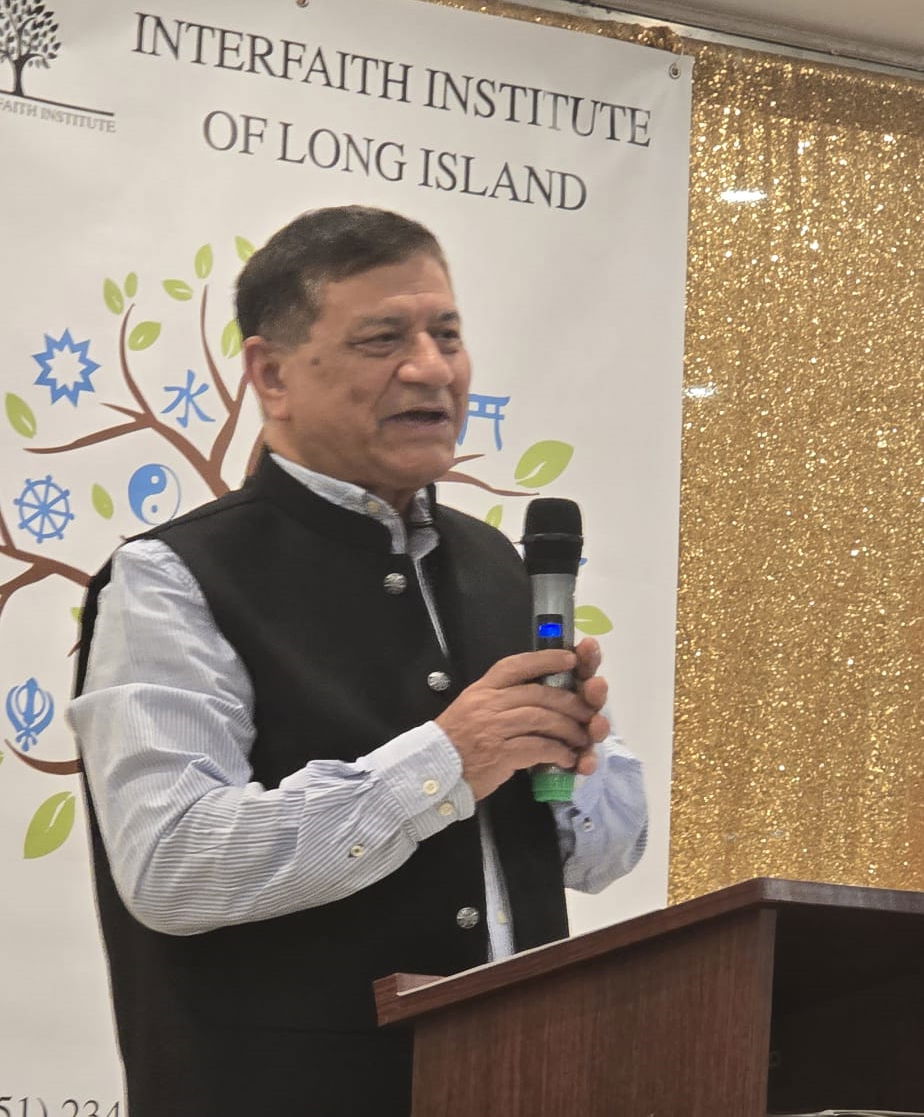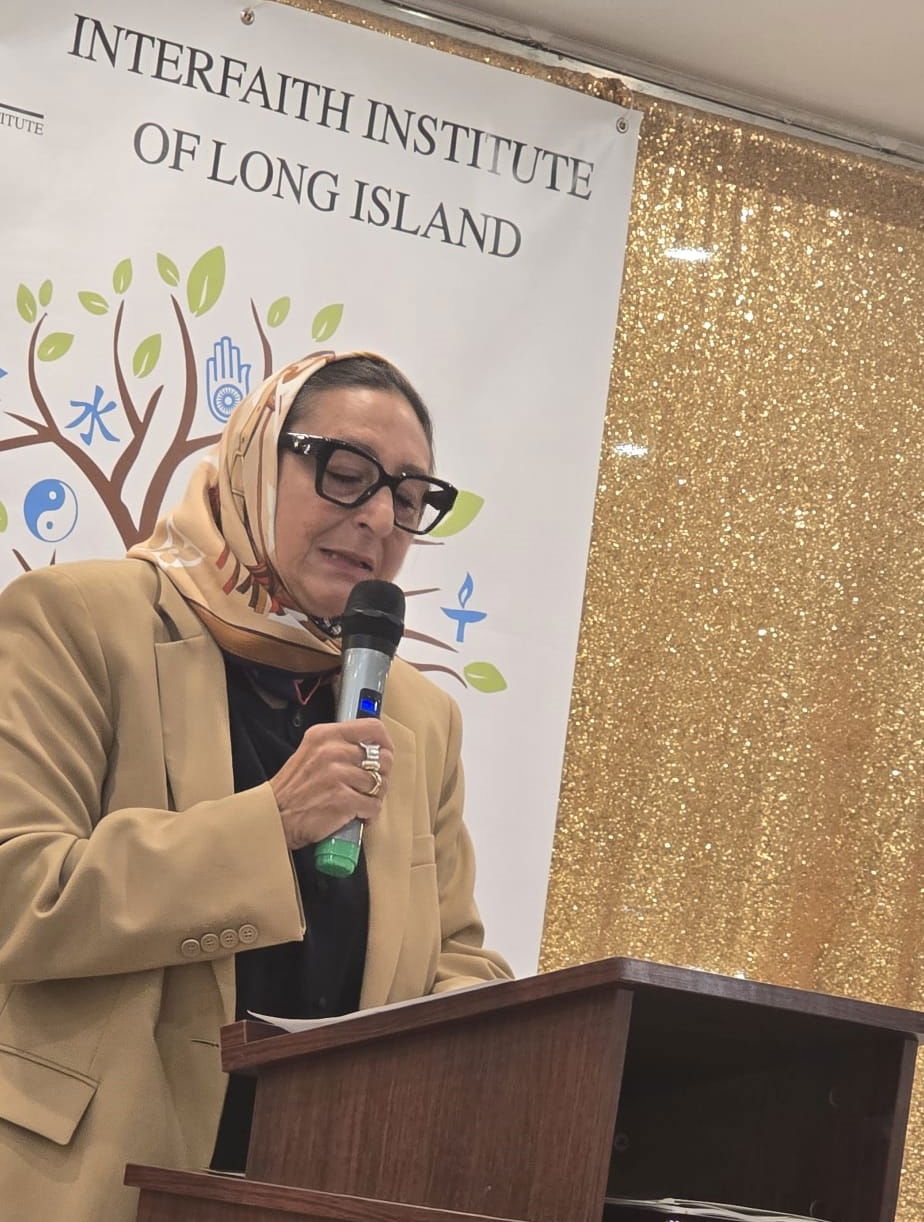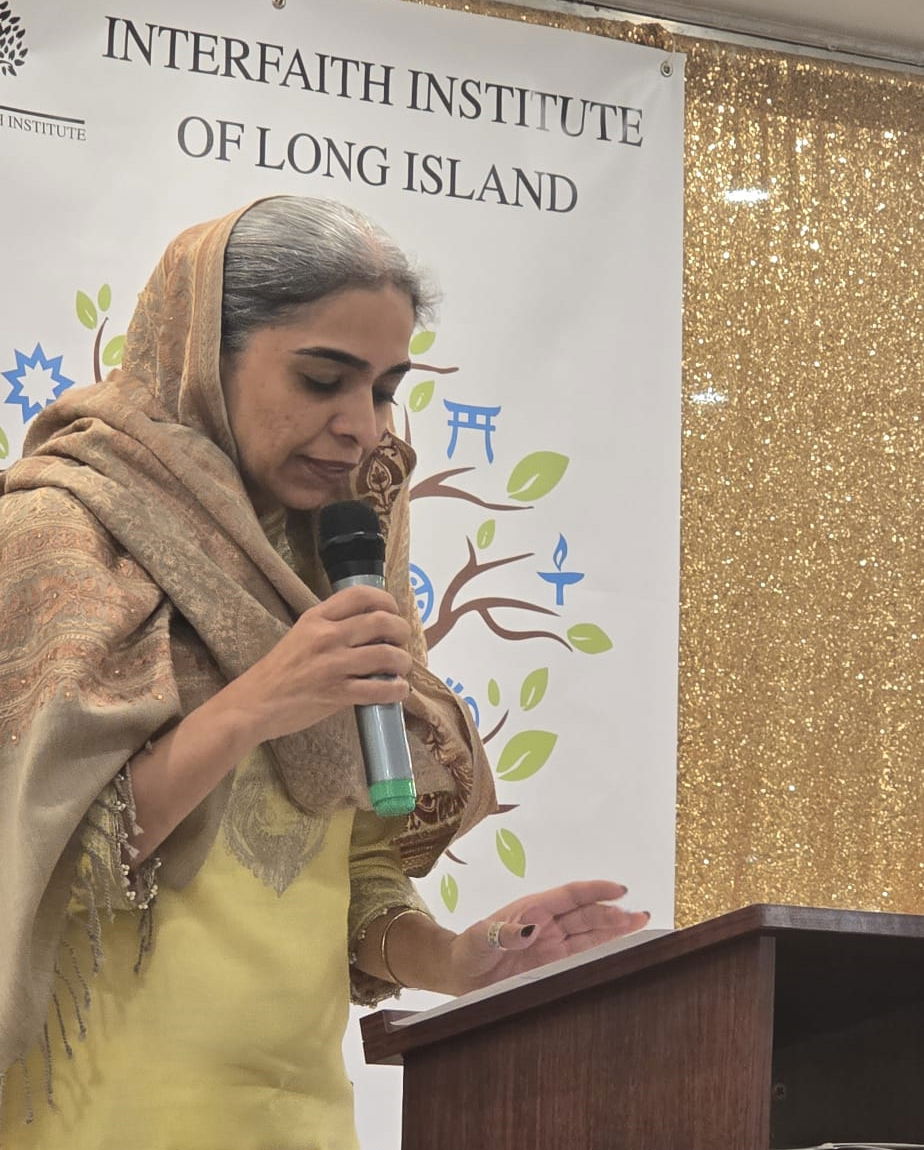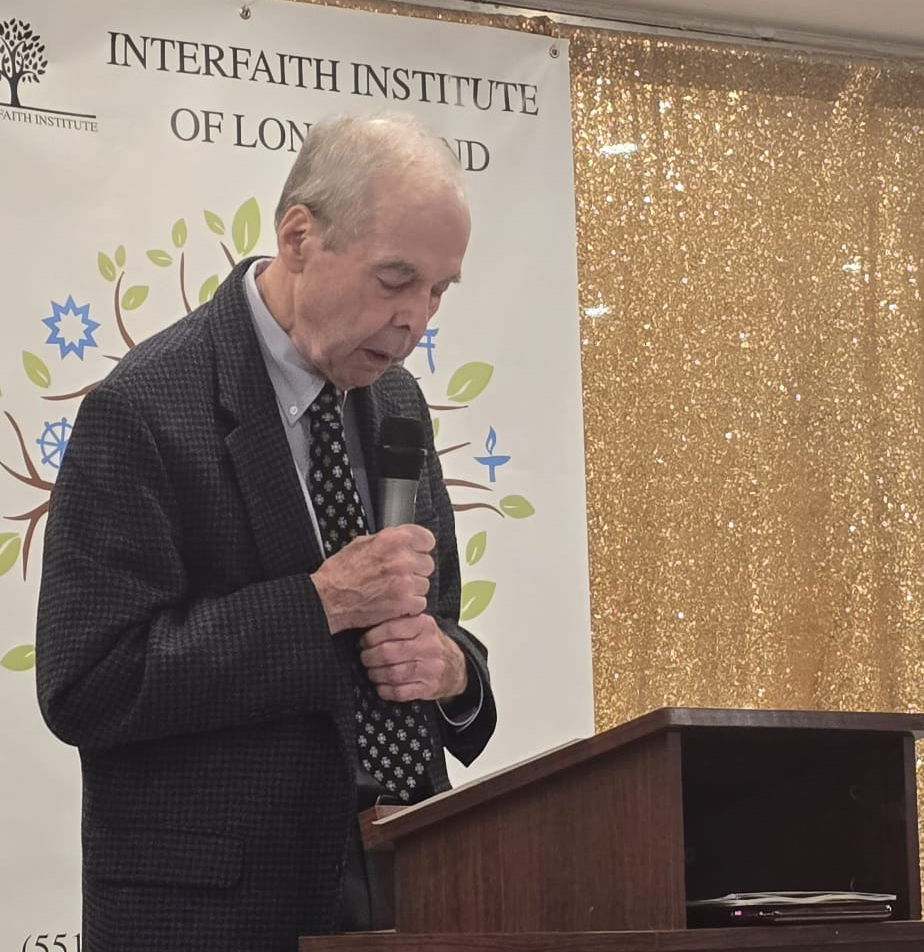America
Interfaith Institute of Long Island honors Rev. Chloe Breyer with 10th annual award
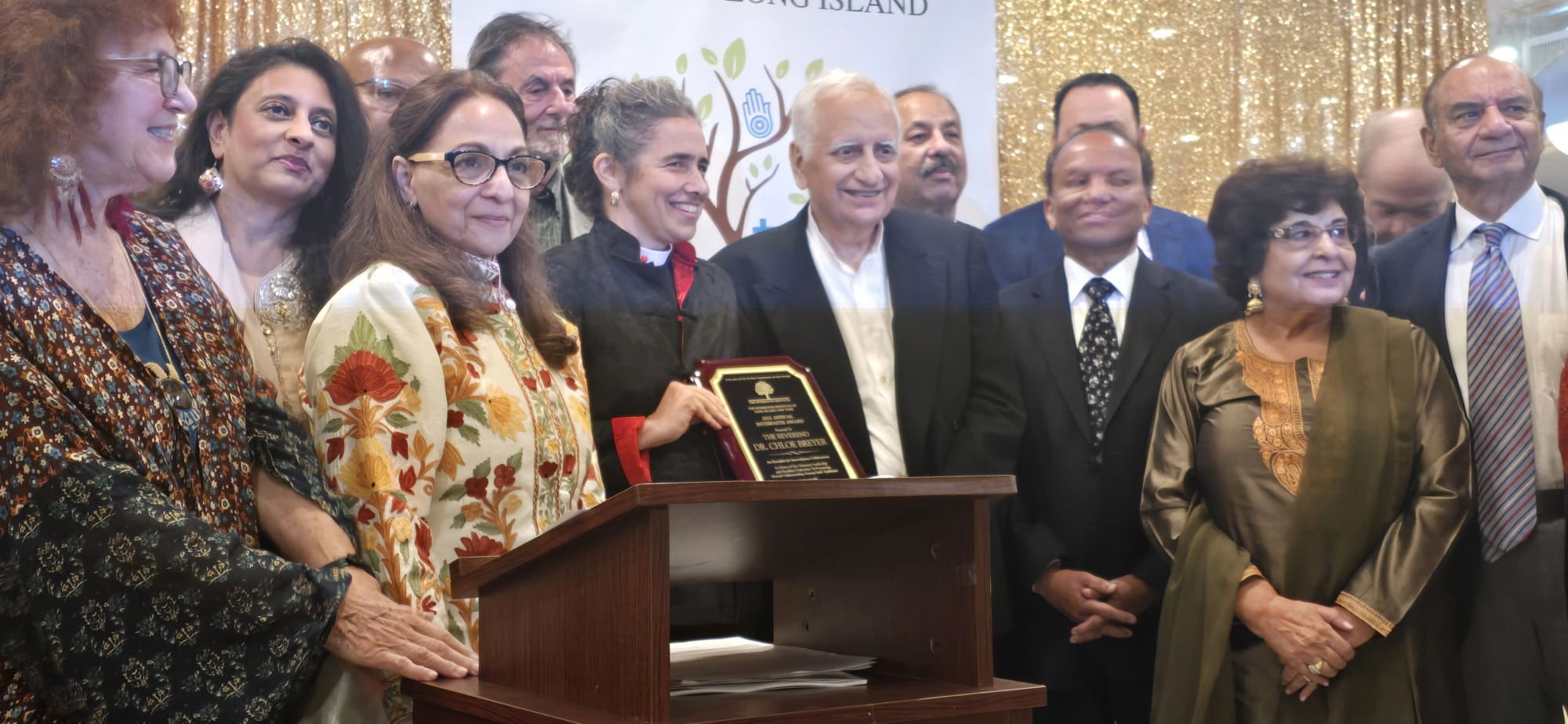
New York: Rev. Chloe Breyer, an Episcopal priest and a noted leader of the interfaith movement, has been presented with the 10th annual award of the Interfaith Institute of Long Island, New York, October 19.
The prestigious honor was bestowed at a glittering event held at the Cotillion in Jericho by Dr. Faroque A Khan, chairman of the Interfaith Institute, and founder of the Islamic Center of Long Island in Westbury, in the presence of Dr. Unni Mooppan, president of the IFI and directors representing various faith traditions.
Rev. Breyer, daughter of Stephen G Breyer, former justice of the US Supreme Court, has served as the director of the Interfaith Center of New York since 2007, which developed a pioneering curriculum in civics training for grassroots religious leaders, built multi-faith advocacy coalitions preventing bias crimes and promoted justice and immigration reform.
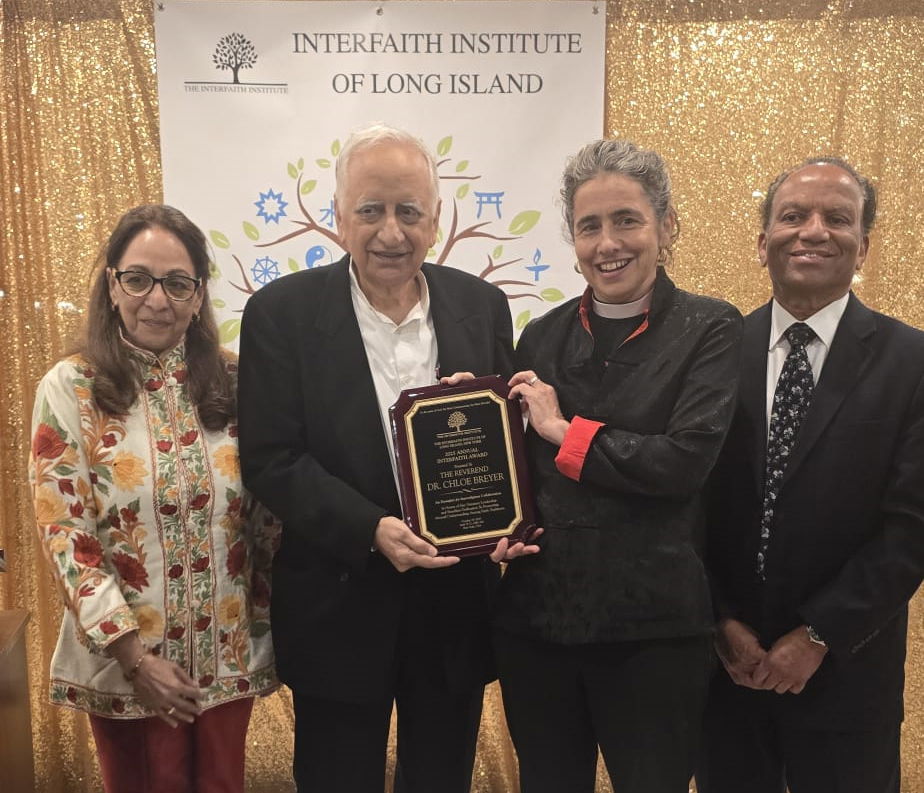
In 2015, she served as a community advisor to court-appointed facilitator tasked with finding a remedy for police profiling in the stop and frisk lawsuits against NYPD. She served Harlem churches including as an associate priest at St. Philips Church since 2012. A PhD holder in Christian Ethics, she has also participated in interfaith dialogues and humanitarian aid initiatives in Afghanistan and Iran.
Dr. Faroque Khan said Dr. Breyer is an example for interreligious collaboration and the award is in honor of her visionary leadership and steadfast dedication to promoting mutual understanding among faith traditions.
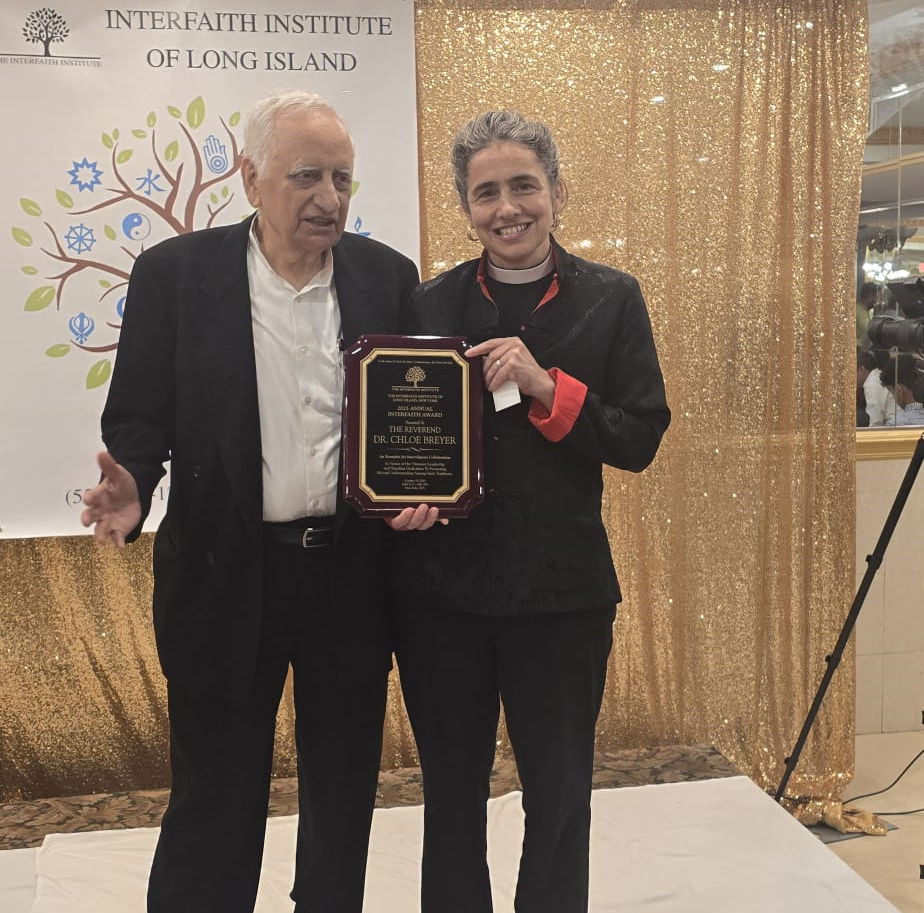
In her speech after receiving the award, Rev. Breyer narrated her journey to create bridges between various religions.
She also praised the work of Dr. Khan, a professor of medicine at the State University of New York at Stony Brook and Master, who is a native of Kashmir. ‘The Interfaith Institute and the Islamic Center are a part of your legacy that is not particularly replicable,’ she told him.
She also noted her collaboration with Dr. Daisy Khan, emcee of the event and a director of the Institute. She remembered how they worked together to organize interfaith prayers for the 10th anniversary event of the 9/11.
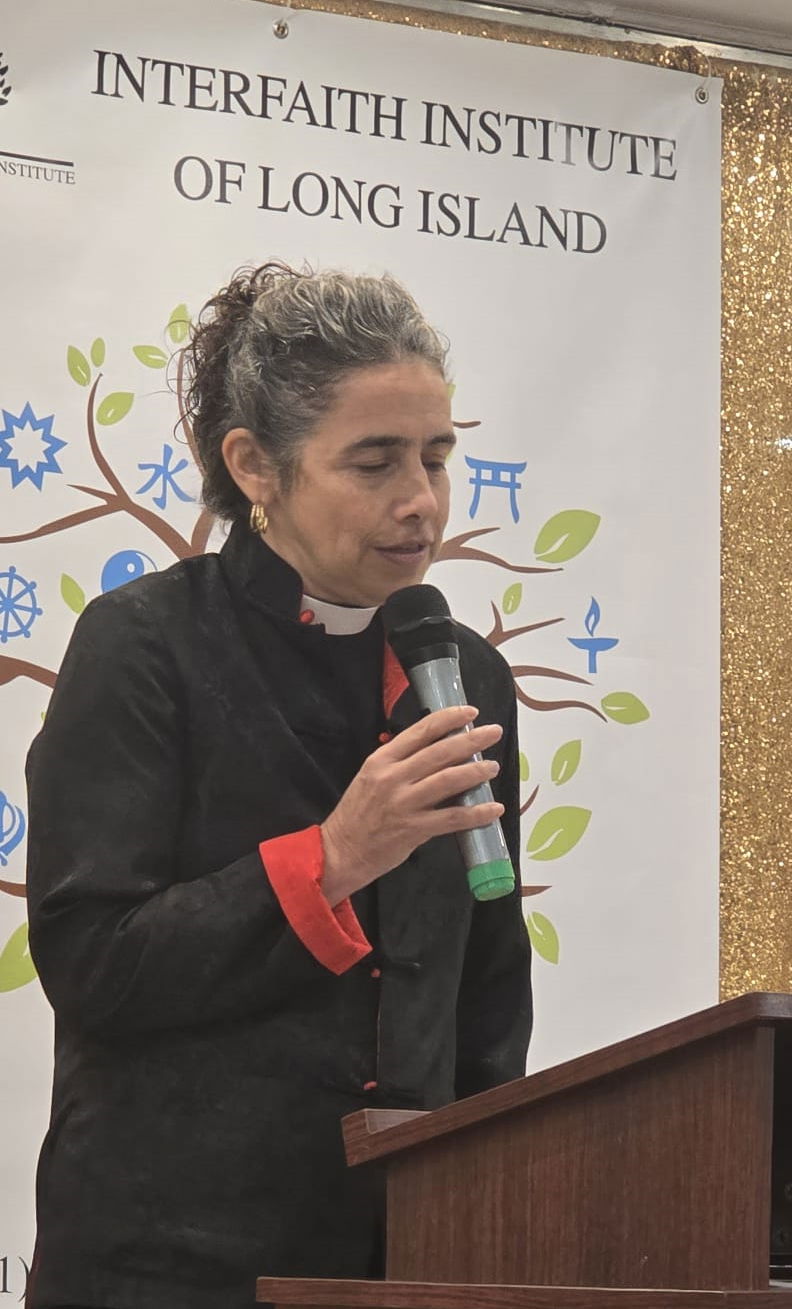
‘I'm here on behalf of the Interfaith Center of New York, which works like the Interfaith Institute to overcome prejudice, violence and misunderstanding by activating the power of New York City's grassroots faith leaders and their communities and we've been doing this since 1997, embracing the diversity that is reflected in this room and knowing that our city's fabric is stronger.
‘Our democracy is stronger because of these interfaith collaborations. We try very hard to give the tools that faith leaders need to engage in civic life in this multicultural democracy. We have come to understand that principles like religious freedom are things that are tied to the practical realities of our day-to-day, including urban planning, zoning, or parking ordinances. That's why we signed on the amicus brief supporting Muslims on Long Island to expand their mosque in Oyster Bay.’
She said she is very happy to receive the award, following the steps of her great mentor Diana Eck, who had won it earlier.
Ten years ago, nobody could have imagined that a Muslim could be running as Mayor of New York City, she noted. Rev Breyer also said that she had spent a lot of time in other people's houses of worship, particularly in mosques.
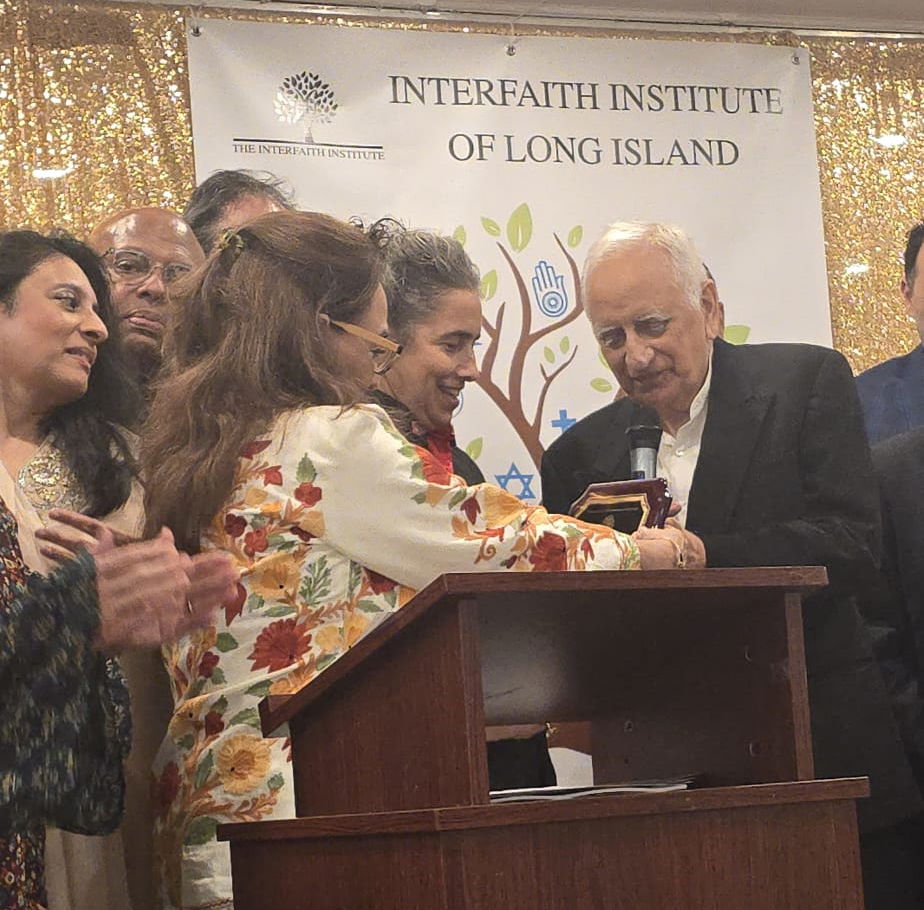
‘There is hope in this dark time and that we've actually come a long way, not just as people from a single tradition, but all of us as New Yorkers. The changes we see now are achieved not in a day. ‘It took lawsuits and sermons, it took rallies and most of all, it took alliances that overcame real religious differences between communities. Where zones of lawlessness are engulfing non-citizens, political members of the opposition and people of the other religious tradition, we have the tools that we have used before and we know that they work,’ she said.
The program started with a presidential address of Dr. Unni Mooppan, who noted that the interfaith dialogues started long ago during the time of the Mongols and the medieval times. We read about discussions and interactions between the scholars of different faiths then.
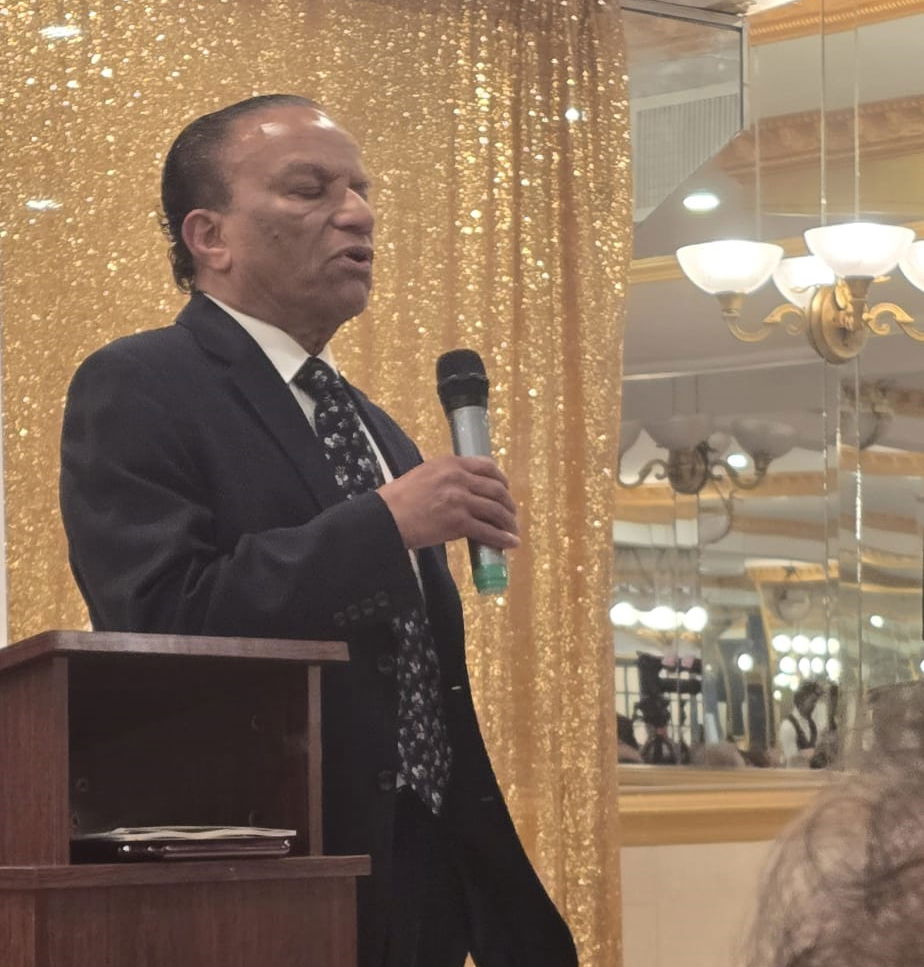
He said he was struck by a landmark event, the World Parliament of Religions convened in 1893 in Chicago. It was held to celebrate the anniversary of the arrival Columbus. More than 8000 people attended it. At the event, a young Hindu monk named Swami Vivekanda captivated hearts of the people. He introduced Hinduism to the West. It was one of the earliest movements of interfaith dialogue in America. The Parliament lasted for 17 days
On his travel Swami Vivekananda met Tata, who was already a millionaire. The Swami impressed upon Tata to start the Indian Institute of Science in Bangalore, which later produced many scientists. It shows what one person can do to make changes in the world, he noted.
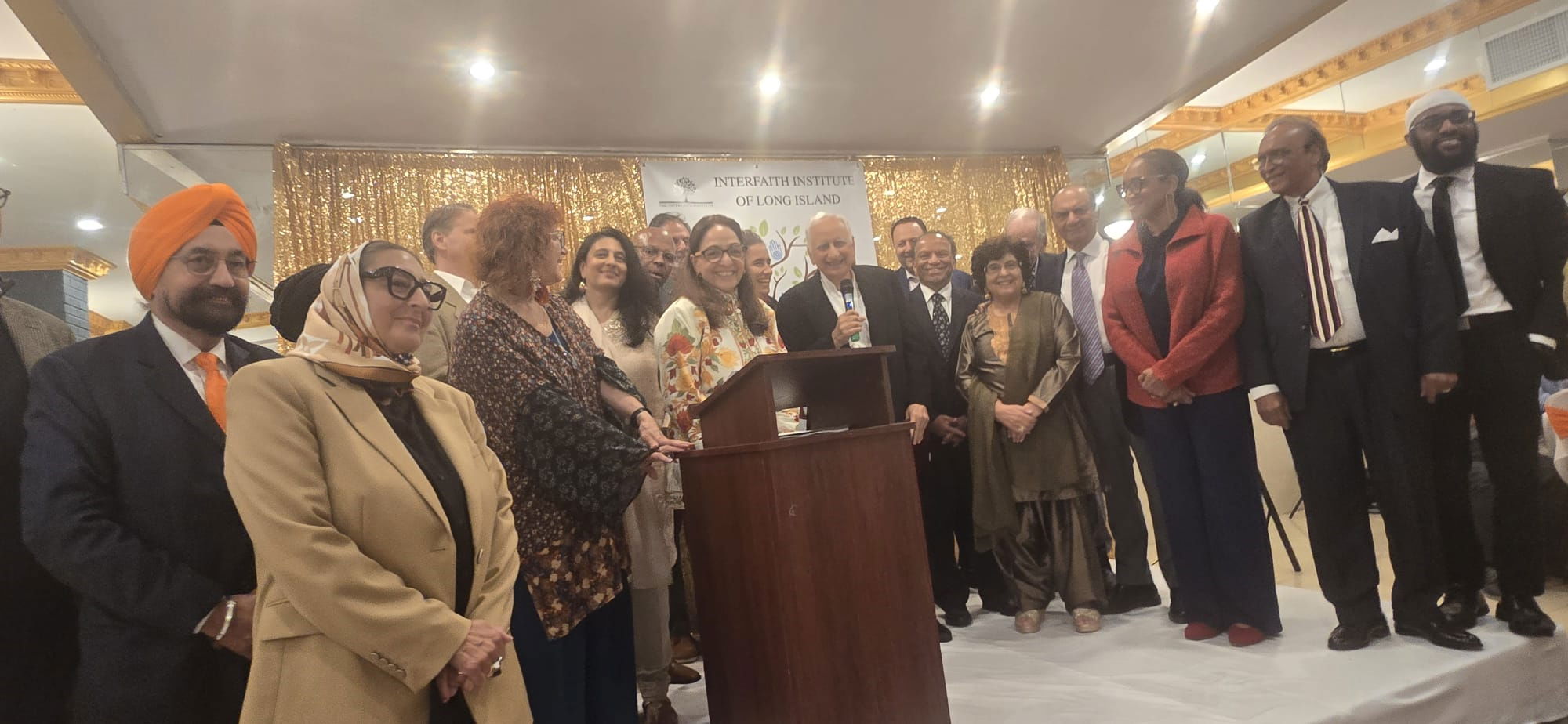
Rev. Vicky Eastland (Christian), Anu Bindra (Sikh), Chaplain Sanaa Nadeem (Muslim), Parveen Chopra (Hindu), Rabbi David Katz (Jewish), Arthr Dobrin (Humanist) and Harriet Fishman (Bahai) said invocation prayers.
Rabbi David Katz spoke on Passover Seder while Lyn Dobrin described Eid Ul Adha dinner. Zainab Bey spoke of Life Cycle events and Daisy Khan spoke about Art events and Halal education.
Music from different faiths was a highlight of the event. Thahseen Mohammed (Muslim), Lisa and Akiva Wharton (Jewish), Budh Prakash Jesuja (Hindu/Sikh) were the singers.
